Data Repositories & Linked Data
advertisement
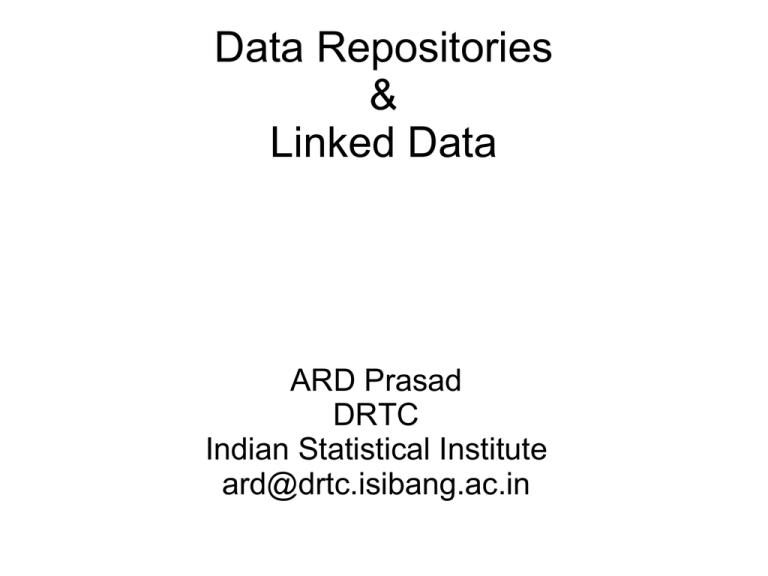
Data Repositories & Linked Data ARD Prasad DRTC Indian Statistical Institute ard@drtc.isibang.ac.in Looking Back Open Access to Information (OAI) •A Fairly successful movement, resulted in •Open Access Repositories (> 2000) •Open Access Journals (> 5000) •Partially bridging digital divide in Social, Physical, Natural Sciences and Humanities, Nature of Publications Many publications use data. Actual article may not have complete data used • For lack of space • Author might have overlooked the data • Author deliberately did not present data so that others can not verify the data For Example Some suspect that Sigmund Freud's data is of fictious persons, it is not just fictitious names If data is available ... • Others may draw different conclusions contradictory to that of the author • Others may deal with other facets of the data • Data Transparency supplements the Objectivity and self corrective characteristics of Science If “Case history of patients” is openly available, it will contribute significantly to medical research Digital Divide • Social Sciences do not require laboratory infrastructure • However, physical and natural sciences do require expensive infrastructure • If experimental data is available to scientists that do not have infrastructure, it will significantly reduce digital divide in Physical and Natural Sciences ODA is a step toward transparency and quality in science For Example • Human Genome data • Data from Accelerator Labs (CERN) • Recent controversy about particle moving faster than light • Not surprisingly, astronomy data is openly available even before the OA movement Features of Open Data Repositories Metadata: specify who is the owner, creator etc • license the data to waive your rights to facilitate bulk download Open Data • Technology Tools: automate data extraction preferable on Cloud • Ontology: Index data Licences Creative Commons licenses (apart from CCZero), GPL, BSD, etc are NOT quite appropriate for open data licences Open Data Licences • Open Data Commons Public Domain Dedication and Licence (PDDL) • Dedicate to the Public Domain (all rights waived) • Open Data Commons Attribution License • Attribution for data(bases) • Open Data Commons Open Database License (OdbL) • Attribution-ShareAlike for data(bases) • Creative Commons CCZero • Dedicate to the Public Domain (all rights waived) Amazon Web Services (AWS) Public Data Sets on AWS • Annotated Human Genome Data provided by ENSEMBL •The Ensembl project produces genome databases for human as well as almost 50 other species, and makes this information freely available. • Various US Census Databases from The US Census Bureau •Demographic data •US Censuses •Summary information about Business and Industry •Economic Household Profile Data. • UniGene provided by the National Center for Biotechnology Information Astronomy Sloan Digital Sky Survey DR6 Subset Biology • Influenza Virus (including updated Swine Flu sequence • Ensembl Annotated Human Genome Data - for MySQL • GenBank Chemistry • PubChem Library • A data set of information on the biological activities of small molecules. • 3D Version of the PubChem Library • UGI Virtual Conformer Library • 500,000 molecules for virtual screening. Climate Daily Global Weather Measurements, 1929-2009 Economics • • • • • Federal Reserve Economic Data Transportation Databases Labor Statistics Databases US Census Business and Industry Summary Data Digital Curation • Collecting verifiable digital assets • Providing digital asset search and retrieval • Certification of the trustworthiness and integrity of the collection content • Semantic and ontological continuity and comparability of the collection content • Use of open standards (formats) for term preservation and future proofing by migration of data Technology • Data repositories are much larger than OA repositories • Cloud Computing is a good solution (AWS uses) • Semantic Web & Linked Data (Linking Data through various methods) Resource Description in terms of Metadata and Ontology RDF: Resource Description Framework SKOS: Simple Knowledge Organization System OWL: Web Ontology Language SPARQL: SPARQL Protocol and RDF Query Language RDF Example Title: Dil-E-Naddan Artist: Talat Mahamed Artist: Suraiya Company: HMV Country: India Price: Rs.100 Year: 1955 <?xml version="1.0"?> <rdf:RDF xmlns:rdf="http://www.w3.org/1999/02/22-rdf-syntaxns#" xmlns:cd="http://www.recshop.fake/cd#"> <rdf:Description rdf:about="http://www.hmv.com/cd/Dil-E-Naddan"> <cd:artist>Talat Mahamed</cd:artist> <cd:artist>Suraiya</cd:artist> <cd:country>India</cd:country> <cd:company>HMV</cd:company> <cd:price>Rs. 100</cd:price> <cd:year>1955</cd:year> </rdf:Description> SKOS Example prefLabel - The preferred term altLabel - These are the See references which point to this record narrower - Contains the related narrower term broader - Contains a sub-element for the authority type which contains the related broader term related - Contains a related term which is at the same level in the heirarchy scopeNote - Note information DBpedia Data Set Multi-domain ontology derived from Wikipedia 3.77 million “things” (entities - Entitypedia) 400 million “facts” Uses YAGO (Yet Another Great Ontology) Entitypedia Multilingual controlled vocabulary Entity matching Data quality and type checking Entity type specific services Semantic or faceted search and navigation on entities Summarization of entities and concepts DRTC Projects Living Knowledge (EC funded project) ITPAR: India-Trento Program for Advanced Research (work on Entitypedia) CHAIN – REDS (EC funded Project): Coordination and Harmonization of Advanced eInfrastructures–Research & Education Data Sets Thank You
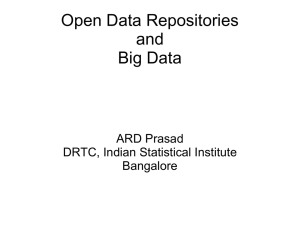
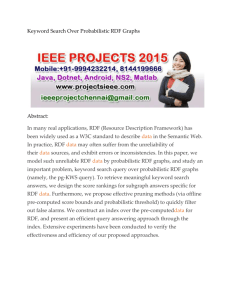
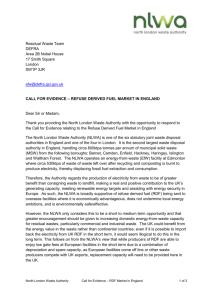
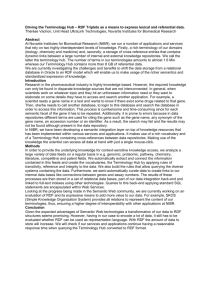
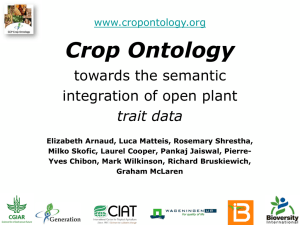
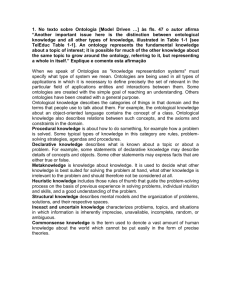
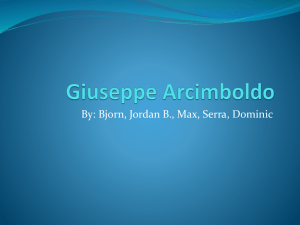
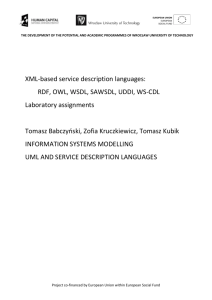
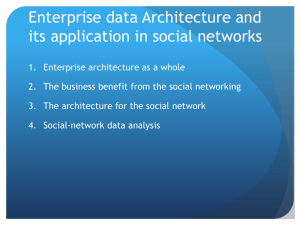
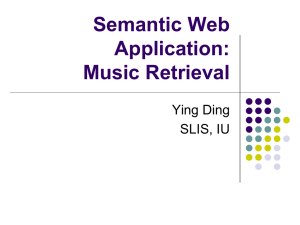
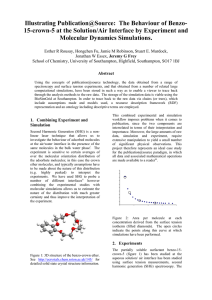
![about="[ds:Control_Room]" typeof="[loc:Room]"](http://s3.studylib.net/store/data/008711116_1-d14c3989302b4c1d4d682aa3cb9a8219-300x300.png)